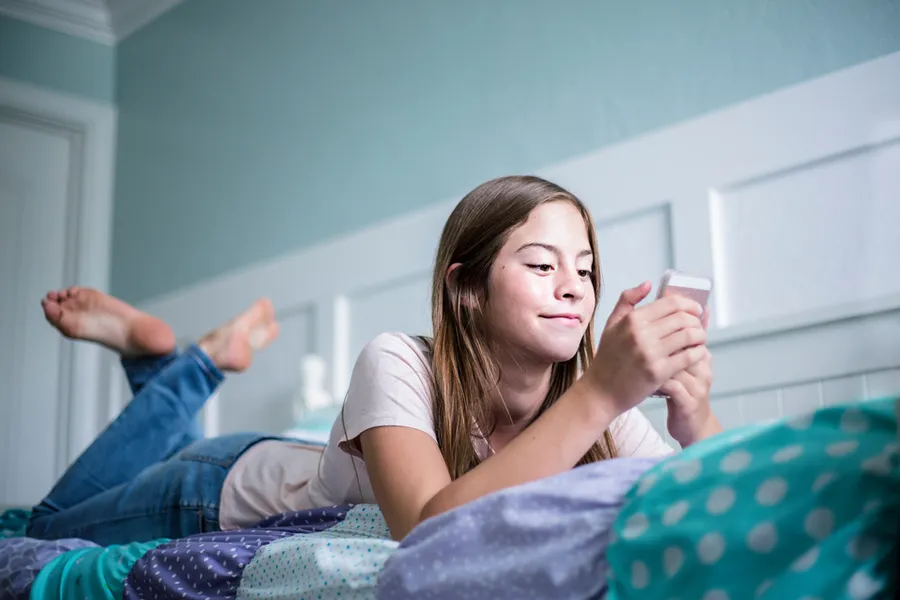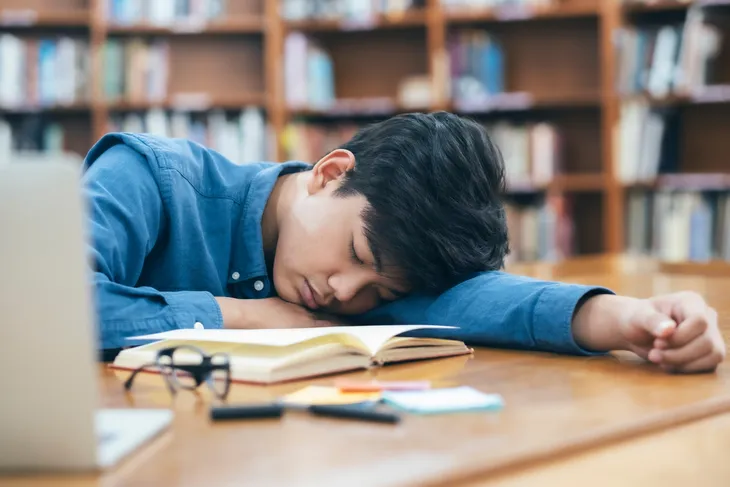Screen Time Is Contributing to Chronic Sleep Deprivation in Tweens and Teens — A Pediatric Sleep Expert Explains How Critical Sleep Is to Kids’ Mental Health

With the start of a new school year comes the inevitable battle to get kids back into a healthy bedtime routine. In many cases, this likely means resetting boundaries on screen use, especially late in the evenings. But imposing and enforcing those rules can be easier said than done.
A growing body of research is finding strong links between sleep, mental health and screen time in teens and tweens – the term for pre-adolescent children around the ages of 10 to 12. Amid an unprecedented mental health crisis in which some 42% of adolescents in the U.S. are suffering from mental health issues, teens are also getting too little sleep.
And it is a vicious cycle: Both a lack of sleep and the heightened activity involved in the consumption of social media and video games before bedtime can exacerbate or even trigger anxiety and depression that warrant intervention.
I am the lead physician of the sleep center at Seattle Children’s Hospital, where I study various pediatric sleep disorders. Our team of physicians and providers routinely observe firsthand the negative effects of excessive screen time, and particularly social media, both of which affect not only sleep, but also the physical and mental health of our patients.
Relationship between mental health and poor sleep
Research has long shown a clear relationship between mental health and sleep: Poor sleep can lead to poor mental health and vice versa. People with depression and anxiety commonly have insomnia, a condition in which people have trouble falling or staying asleep, or both, or getting refreshing sleep. That ongoing sleep deprivation further worsens the very depression and anxiety that caused the insomnia in the first place.
What’s more, insomnia and poor-quality sleep may also blunt the benefits of therapy and medication. At its worst, chronic sleep deprivation increases the risk of suicide. One study found that just one hour less sleep during the week was associated with “significantly greater odds of feeling hopeless, seriously considering suicide, suicide attempts and substance use.”
And what do young people do when lying in bed awake, frustrated and unable to sleep? You guessed it – far too often, they get on their smart devices.
Studies across the world in over 120,000 youth ages 6 to 18 who engage in any sort of social media have repeatedly shown worsened quality and decreased quantity of sleep. This is happening across the globe, not just in the U.S.
A state of chronic sleep deprivation
Making sleep a high priority is a cornerstone of overall health and mental health, and it is also key to staying alert and attentive during the school day.
Multiple professional medical and scientific organizations have recommended that teens sleep eight to 10 hours per night. But only 1 in 5 high schoolers come close to that.
Some of this is due to school start times that don’t align with the natural rhythms of most teens, so they don’t fall asleep early enough on weekdays.
Teens who don’t get enough sleep may suffer from weak academic performance, a lack of organizational skills and mediocre decision-making. Teens don’t have fully formed frontal lobes, the part of the brain that controls impulse and judgment. Sleep deprivation further impairs those behaviors. This, in turn, may lead to poor decisions regarding drug and alcohol use, driving under the influence, sexual promiscuity, fighting or the use of weapons, and more. And these behaviors can start in middle school, if not earlier.
In addition, sleep deprivation is directly linked with high blood pressure, heart attacks and the development of diabetes in adulthood. Lack of adequate sleep is also linked with childhood and adolescent obesity. Undesired weight gain occurs with sleep deprivation though a series of complex mechanisms, including shifts in metabolism, a more sedentary lifestyle and poor dietary choices.

Latest Articles

Does Chicken Soup Really Help When You’re Sick? A Nutrition Specialist Explains What’s Behind the Beloved Comfort Food
Preparing a bowl of chicken soup for a loved one when they’re sick has been a common practice...

Aerobic and Strength Training Exercise Combined Can Be an Elixir for Better Brain Health in Your 80s and 90s, New Study Finds
People in the oldest stage of life who regularly engage in aerobic activities and strength training exercise...

How to Overcome Repetitive Negative Thinking Through Meditation
Do you ever find yourself caught in a cycle of negative thoughts? Maybe you ruminate on past mistakes, worry excessively about the...

Can Coffee or a Nap Make Up for Sleep Deprivation? A Psychologist Explains Why There’s No Substitute For Shut-Eye
There is no denying the importance of sleep. Everyone feels better after a good night of sleep, and lack of sleep can have profoundly negative...